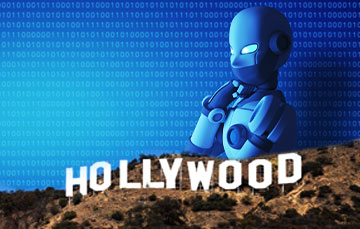
Larry Sanger is an esteemed figure in the technology community.
Recognized as one of the early pioneers of the Internet, in 2001 he co-founded Wikipedia.
He is also credited with having come up with the site’s name, which is a combination of the word “encyclopedia” and the Hawaiian word “wiki,” which means “quick.”
He and almost all of the early tech-innovators back in the day envisioned a continuous “free and open” Internet, one in which the marketplace of ideas could forever run with abandon.
Sanger has a Ph.D. in philosophy, served as a professor at a number of universities, and remains one of the truly deep thinkers of the technology world.
Many view him as the chief source of the underlying philosophy of the World Wide Web.
In an interview with senior fellow at the Manhattan Institute Christopher Rufo, which was conducted for City Journal, he reacted to statements of former Wikimedia Foundation CEO Katherine Maher, who is now CEO of NPR.
Maher’s statements have created a major backlash. She has basically rejected Internet freedom, admitted that collaboration with government to censor content has been occurring, and seemingly embraces relativism over objective truth.
Acknowledging the inherent bias that exists in Wikipedia, Sanger stated, “The fact that certain points of view have been systematically silenced, is nothing new.”
Yet the Maher comments that were recently reported by Rufo appear to have left Sanger seriously befuddled.
“My jaw is on the floor,” he said.
The Wikipedia co-founder indicated that he was previously unaware of “just how radical-sounding Katherine Maher is.”
Wikimedia’s former CEO reportedly said that it was an error for Wikipedia to be “free and open” and also suggested that allowing the site to be managed in this manner has led to bad outcomes.
Maher also acknowledged that she has worked together with governments to suppress what she deems as “misinformation” appearing on the Wikipedia site.
Sanger was quick to remark, “It’s fantastic, in a bad way, that she actually comes out against the system for being ‘free and open.’”
He views her actions in collaborating with government to censor material as completely incongruent with the notion of a free Internet.
“When she says that she’s worked with government to shut down what they consider ‘misinformation,’ that, in itself, means that it’s no longer free and open,” he noted.
He views it as outrageous that the site “has not just been taken over by the Left, but has been co-opted by and working with the government. That’s not a thing I would’ve imagined happening 20 years ago.”
What makes the situation even more untenable is the fact that now Maher is the head of a national broadcasting company that is financed by American taxpayers.
Sanger believes that she should be immediately removed from her position as CEO of NPR.
“If NPR wanted to prove that they were still committed to free speech, to being ideologically neutral, and simply nonpartisan, they would let her go right away,” he said.
He remembers clearly the vision of the web at its inception.
“We didn’t have to have a special vision of a free and open Internet. That was the Internet,” he emphasized.
Those of us who were early Internet adopters believed that freedom would forever be its hallmark.
Sanger said that in those early days “the notion of restrictions on free speech was nowhere to be found.”
He additionally commented that “in the 1990s and 2000s, Democrats and Republicans were competing with each other to demonstrate how much in favor of free speech they were.”
In an attempt to enhance the understanding of the fragile nature of the net, the online founding father drew from his academic background.
“As a philosopher, I knew that this was not automatic, that it could easily change,” he explained, noting that “we could lose these freedoms.”
To paraphrase the words of one of our nation’s eminent founding fathers, it’s a free platform if you don’t bleep it.






You must be logged in to post a comment.